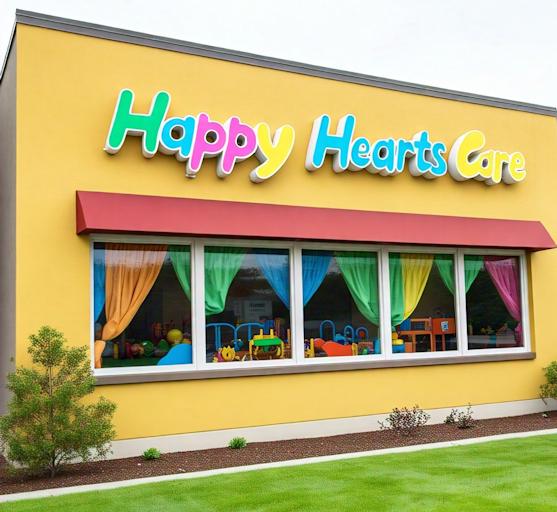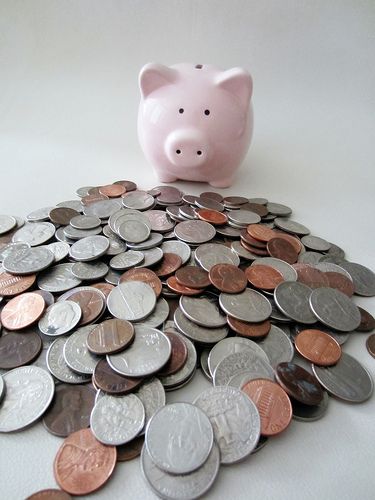Despite what modern people might claim, quite a number still hold on to traditional dreams and desires. Probably the best example of such a dream is that of one day having a family of your own. Kids are great no doubt, they bring joy, excitement, and a sense of awe and wonder to life but it is very important to be realistic. You must understand that babies and children in general are pretty expensive especially with the current economy. According to Investment News it costs almost $235,000 to raise a child (and that’s not counting college). But there are ways that you can reduce the cost if you are careful. Here are a few finance tips for expectant parents:
Think Before You Buy

It is natural to feel elated when you hear that a baby is on the way, but it’s also important not to get carried away. Many parents go on a shopping spree days after learning that they will be having a new member in the family. You need to sit down after the news and think very soberly about what the baby really needs and not just embark on purchasing everything with the word baby before it. There is no need to buy very costly accessories and toys because babies don’t care about the price tag. Also, try not to spend too much money on clothes that the baby will outgrow in a matter of weeks. There are also quite a number of baby items that you don’t have to buy at all; you can simply rent them from various stores. Also, remember that you may be the recipient of gifts from baby showers, etc so don’t rush out too quickly. If you must buy things like baby swings and cribs, it would be cheaper to go for those that have been slightly used, often they are still in perfect condition. Start by looking at charity shops like Salvation Army and Goodwill, you might find just what you are looking for. The next step is a local consignment shop for Moms and young children. Finally, try places like Craig’s List and eBay. Once you have exhausted all of these other avenues you might try Amazon before finally going to your local store.
Sort Out Your Finance-Related Issues
Debt is almost unavoidable in these hard times, but if you are about to have a baby, this is one thing you are going to have to significantly reduce or eliminate altogether. As mentioned, babies do not just need your tender love and care; they also need your money. If you have significant debt, the best thing to do is to pay off those with high interest rates first. Also, consider opening another account and working to save not less than six months’ worth of spending before your bundle of joy arrives. This will cushion you from the sudden increase in expenses that will accompany the arrival of your baby. Often families have two incomes before the arrival of the first baby, so this should be your best opportunity to begin saving. If you can’t save with two full incomes and only two mouths to feed, how will you be able to save with three mouths to feed and less free time?
Breastfeeding
Of course, this is something that you will only be able to do after the baby arrives, but it is important to start preparing yourself for it. Quite a number of modern-day moms are not very fond of the idea of breastfeeding for a variety of reasons, including time. Because of work, most mothers are unable to avail time to breastfeed their babies. However, if you take time to think about the issue critically, you will realize that there are significant savings to be made if you feed your baby the natural way. Depending on the brand, baby formula can cost between 20 and 30 dollars per can. On average, a baby can consume between 6 and 7 of these every month; this translates to 120 dollars on the lower side and over 200 dollars on the higher side! If you breastfeed exclusively for six months as is recommended, you will definitely have a more attractive bank statement. Plus there are numerous known health benefits to breastfeeding including increased immunity, better nutrition, protection from allergies, increased intelligence, protection from obesity, reduced risk of SIDS, plus numerous health benefits for the mom as well including reducing post-partum depression and reduced cancer risk.
Stick To The Necessities
Cloth diapers may sound messy, smelly, and inconvenient but disposables are very expensive and not good for the environment. One package of Huggies Pure & Natural Diapers, Newborn, 72 Count costs about $20. and may only last a week or two. Considering that the average baby doesn’t start potty training until 18 months (77 weeks) disposable diapers alone can cost you $770. On the other hand, a 10-pack of Prefolded Cloth Diapers will set you back about the same $20. Since they are reusable you should only need a few packs of them to last the whole 18 months plus a few diaper covers which you should be able to find at your local consignment shop for a few bucks. You don’t need to go 100% one way or the other either. You could choose to use cloth diapers while at home and disposables for when traveling or for nights, etc.
In The Money Saving Mom’s Budget book, Crystal Paine shows how saving money is like getting an instant pay raise. She shows how to save money on groceries, cleaning supplies, travel, etc. An interesting quote from one of the people she has helped…
“A few months ago, I gave myself the challenge to stick to a $50-per-week grocery budget for our family of three. We are in medical school, and every little bit counts, so I was determined to stay on budget. It’s been a challenge because I used to spend $550 to $600 per month on groceries and thought people who had budgets and used coupons just needed to get a life! I had always said that I’d rather make money than save money. But the funny thing is until I started sticking to a Budget for our groceries, we were just going further and further into debt. “Gaining control over this one area of our finances has helped me realize I can be in control of all of our money. I am so glad that I’ve finally seen the ‘financial light’ and am now committed to keep all our finances in check.”
Recommended by Amazon:
- The Money Saving Mom’s Budget: Slash Your Spending, Pay Down Your Debt, Streamline Your Life, and Save Thousands a Year
- What to Expect When You’re Expecting
- The Nursing Mother’s Companion
- The Womanly Art of Breastfeeding
- Cloth Diaper Supplies
- Breast Feeding Supplies
See Also:
- How To Develop Winning Money Management Skills
- Teaching Your Kids Money Management Skills
- College Savings Accounts
- 10 Ways to Save Money on Your Next Family Vacation
- 8 Ways to Save on the Cost of Child Care
- Tax Deductions for New Parents
- Money-Saving Ideas for Frugal Moms and Dads
Image courtesy of Hin255 / FreeDigitalPhotos.net


